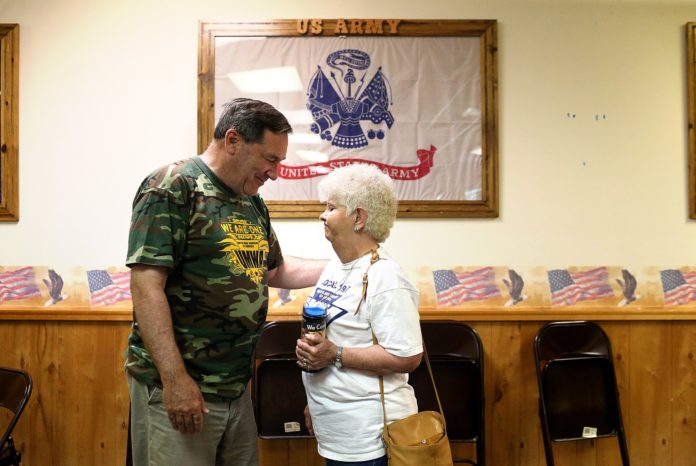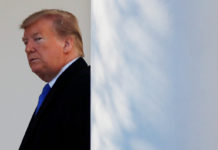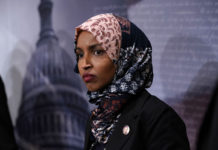
BOONVILLE, Ind. — Joe Donnelly knew his audience: Addressing a group of camouflage-clad union mine workers and retirees here last weekend, the Democratic senator trumpeted his efforts to protect their pensions and health care, asked attendees to raise their hands if they knew someone with a pre-existing health condition, and made not a single mention of the upcoming Supreme Court vote that could determine his political fate in November.
“It’s a big deal to those who know it’s a big deal, but it doesn’t translate to folks that go to work every day — they’re focused on things that make their life better,” said Russ Stillwell, a former Democratic state lawmaker from this southern Indiana community, explaining why Mr. Donnelly had ignored the most urgent topic in Washington just days before President’s Trump’s announcement that he would nominate Judge Brett M. Kavanaugh.
Two days later, in a Democratic campaign office at a strip mall in eastern Pennsylvania, a different atmosphere prevailed in the run-up to Mr. Kavanaugh’s nomination. Susan Wild, who is running for an open House seat in her Lehigh Valley district, and several dozen volunteers made phone calls Monday evening to women in the area, warning them that another conservative justice would put Roe v. Wade “in more danger than ever,” as a script provided to campaign workers described it.
“It’s not just Roe — it’s a lot of things Democrats care about,” said Barbara Diamond, a local activist who joined the volunteer session. “Affirmative action, the A.C.A., gun control — lots of things the court has the power to roll back.”
The monthslong Supreme Court clash that lies ahead will draw hundreds of thousands of activists to the fray, produce tens of millions of dollars in advertising and consume untold hours of television coverage.
But the long-awaited debate over replacing Justice Anthony M. Kennedy’s swing vote is more likely to intensify the existing forces of the 2018 midterm elections rather than turn the campaign on its head.
In Senate races, Mr. Trump’s judicial selection could amount to a test of fealty for Democratic lawmakers in mainly conservative states like Indiana, where control of the chamber is likely to be decided. But the choice of a judge who could threaten abortion rights is likely to stir renewed opposition from voting groups, like white women, in the moderate suburbs that may determine control of the House.
The red-state Democrats who have tried consistently to find points of conspicuous agreement with Mr. Trump, even as their party opposes him overall, reacted with telling caution Tuesday to the nomination of Judge Kavanaugh. Plainly wary of alienating the right-of-center voters they must win over by November, Mr. Donnelly and Senators Joe Manchin III of West Virginia and Heidi Heitkamp of North Dakota, each of whom voted to confirm Justice Neil M. Gorsuch last year, promised only to study the judge’s record.

Making his way through the Capitol, Senator Bill Nelson of Florida said “look at my statement” three times in 15 seconds when pressed about the appointment, hoping to let his carefully worded news release carry the day.
Such dodges only whetted the appetites of Republicans, who taunted the Democrats for their hesitation and, in some cases, predicted they would eventually give in and support Judge Kavanaugh.
“I can immediately say, without hesitation, that I would support this nomination,” said Mike…










